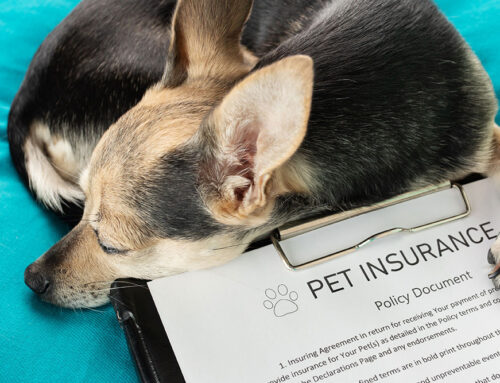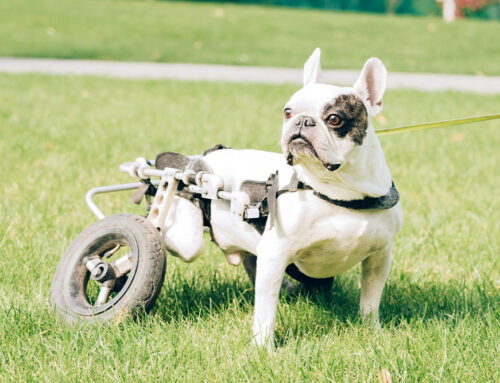Your pet faces many risks every day, but you may be surprised to learn that dirt is one of them. After all, most cats and dogs love to dig around in topsoil, so what could be so harmful? Unfortunately, dirt contains several hazards that threaten your four-legged friend’s health, including bacteria, fungal spores, and viruses. Our Star of Texas Veterinary Hospital team digs into the dirt to explain why something as innocuous as a few inches of soil can harm your pet.
Hazards in soil that threaten pets
Dirt, often perceived as being benign, can harbor numerous hidden hazards that threaten pets’ health and well-being. The risks vary significantly, from parasites and bacteria to chemical contaminants. Common health threats occurring in ground soil include:
- Parasite eggs — Soil can harbor various parasites’ eggs from infected animals’ feces. These include roundworms, hookworms, lungworms, whipworms, and other intestinal parasites. Pets, especially dogs, can get infected by ingesting contaminated soil or through skin contact.
- Bacteria and viruses — Dirt contains bacteria and viruses that may cause pet infections. For example, leptospira bacteria can survive in soil and water for an extended period and cause leptospirosis in dogs, a severe zoonotic disease affecting the kidneys and liver. Parvovirus can also survive in soil for extended periods, leaving unvaccinated dogs vulnerable.
- Fungal spores — Certain fungi release spores into the soil, some of which can harm pets if ingested or inhaled. Common fungal species that can harm pets include:
- Aspergillus — This species can cause respiratory issues or fungal infections in pets.
- Histoplasma capsulatum — This fungus is found in soil enriched with bat droppings and can cause respiratory illness if the spores are inhaled.
- Blastomyces dermatitidis — Blastomycosis is a fungal infection caused by Blastomyces dermatitidis, commonly found in moist soil. Pets can inhale the spores, leading to respiratory issues, fever, and lethargy.
- Coccidioides immitis — This fungus, commonly known as cocci or Valley Fever, can cause cough, fever, lethargy, lameness, and more severe health problems in pets.
- Chemical contaminants — Soil can contain various toxic substances such as heavy metals, pesticides, fertilizers, and chemicals from industrial runoff. Pets may accidentally ingest these substances while digging or playing in contaminated soil, potentially being poisoned. Long-term chemical exposure can impact your pet’s systemic health and increase their chances of developing cancer.
Soil safety for pets

If your dog or cat likes to snuffle around or dig in the dirt, redirect their behavior for their safety. To limit your pet’s exposure to dirt’s hazards, follow these tips:
- Maintain your pet’s vaccines — Schedule your furry friend’s wellness exam with our Star of Texas Veterinary Hospital team. Along with administering your pet’s vaccines, we will screen them for infections, diseases, and parasites and recommend parasite-prevention medication. We will also ask about your pet’s lifestyle and possible exposure to soil- and water-borne illnesses.
- Supervise your pet outdoors — When your pet is outdoors, especially in areas where they have access to soil, maintain a close watch and redirect their attention to a toy or treat if they start to dig or root around.
- Leash your pet — When on a walk with your pet, use a leash, especially in natural areas or places where other dogs and animals frequent. Otherwise, play with your pet in a safe fenced area to prevent them from wandering into potentially contaminated areas.
- Pick up pet waste — Bring waste bags or a scoop with you while walking your pet to prevent them from spreading parasites and bacteria they may be carrying.
- Use natural lawn and garden treatments — Avoid using chemical fertilizers, pesticides, herbicides, or any other yard products that could poison your pet. Opt for pet-safe solutions to maintain your lawn and garden’s health and beauty.
- Build a pet sandbox — If your pet loves to play in dirt, a safe option is to create a sandbox for them in the yard. Periodically, empty the old sand and replace it with fresh sand to remove bacteria, waste, and other pathogens.
While your pet may want to play in or investigate dirt, the hazards that lurk in soil can threaten their health and well-being. Take precautions when outdoors and ensure your pet is in excellent health by scheduling an appointment with our Star of Texas Veterinary Hospital team.






